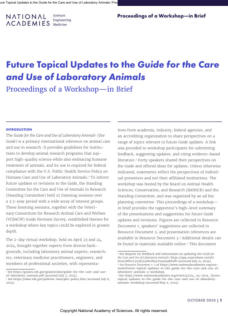UN conventions and national laws 2015 - Now






This resolution applies to vessels with dynamic
positioning system constructed after the ninth of June
2017

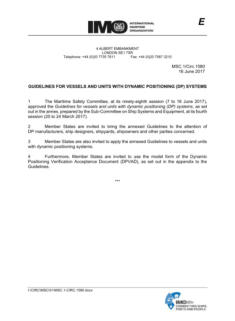

This circular lists the certificates and documents that are
required under IMO instruments and it does not include
certificates or documents required by other international
organizations or governmental authorities.
It supersedes FAL.2/Circ.127-MEPC/Circ.817-
MSC/Circ.1462.



This document displays the consolidated text established
by the International Labour Office, including the
amendments published in 2014 and 2016.
This convention is based on the following ILO
conventions:
- The forced labour convention.
- The Freedom of worker associations
- The right of workers to organize collective bargainings.
- The equal remuneration convention.
- The abolition of forced labour.
- The convention regarding discrimination.
- The conventions regarding child labour.
This document should be in force for every offshore work.


This document , edited by “Safety4sea” is a consolidation
of the IMO International Convention for the Prevention of
Pollution from Ships



The principles laid down in the Tripartite Declaration
of Principles concerning Multinational Enterprises and
Social Policy (MNE Declaration) offer guidelines to
multinational enterprises, governments, and employers’
and workers’ organizations in such areas as employment,
training, conditions of work and life, and industrial
relations. This guidance is founded substantially on
principles contained in international labour Conventions
and Recommendations.


There is increasing attention to migrant workers in
multilateral frameworks. Two of the UN Sustainable
Development Goals targets relate directly to the need to
lower costs borne by migrant workers, especially those
who leave their families to support them by working
temporarily abroad. There has been a growing focus on
fair recruitment practices—those which do not charge
fees and related costs to migrants and allow them to
keep a greater share of their earnings. Another important
issue in protecting workers is to ensure that they are not
exploited at the workplace, and this extends equally to
those who are undocumented. The publication provides
evidence on the extent of irregular migration in Asia.

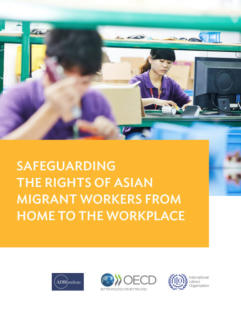

This document provides a brief presentation of the ILO’s
standards policy with a view to facilitating understanding
and ownership by the ILO’s traditional constituents, as well
as the United Nations system, non-specialists and the
broader public.

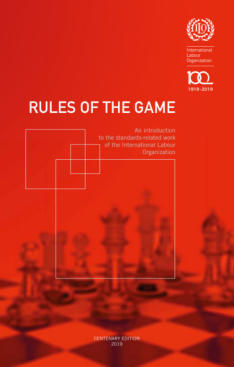

In response to growing international concern over
chemical safety, the Strategic Approach to International
Chemicals Management (SAICM) was developed to serve
as a policy framework to promote chemical safety.
Occupational exposure considerations should be at the
core of SAICM Beyond 2020 and even stronger measures
are needed in this new framework to protect workers
from chemical exposures.

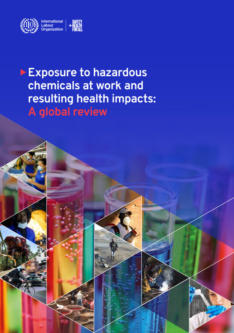

The effectiveness of labour law, including occupational
safety and health (OSH) legislation, results from a complex
relationship between its normative quality; its accessibility;
its response to actual regulatory needs; and an effective
sanctioning system, both with regard to the sanctions it
establishes and the procedural rules for applying them.
Nonetheless, it has been widely observed that many
countries struggle to varying degrees in regulating their
administrative and judicial sanctioning procedures as
applicable to labour law infractions.

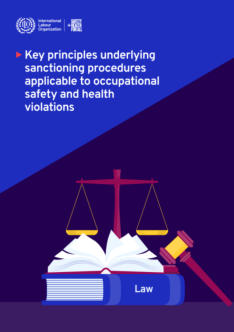
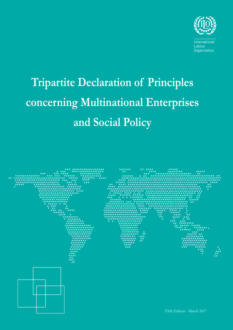

The "Manual of Tests and Criteria" contains criteria, test
methods and procedures to be used for the classification
of dangerous goods according to the provisions of the
"United Nations Recommendations on the
Transport of Dangerous Goods, Model Regulations", as
well as of chemicals presenting physical hazards
according to the "Globally Harmonized System of
Classification and Labelling of Chemicals (GHS)". It
therefore also supplements national or international
regulations which are derived from the Model Regulations
or the GHS.

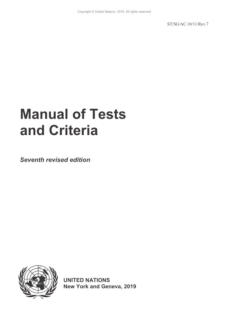

Publisher: Council for International Organizations
of Medical Sciences (CIOMS)
Health-related research has become highly complex with
a wide range of stakeholders active at the local, regional
and international levels. To facilitate and contain this
process, numerous ethical, professional and industrial
guiding documents have been adopted and constitute a
dense normative framework. One of the first and most
cited of these documents is the Declaration of Helsinki,
adopted in 1964 by the World Medical Association, which
is largely recognized as the “constitution’ of research
ethics, and which all other documents make reference to,
including the 2016 CIOMS “International ethical guidelines
for health-related research involving humans”.



Publisher: World Health Organization
This document, published by the World Health
Organization, leverages crucial data to urge governments
and professional groups to adopt appropriate worker
protection measures.



Author: Andre Constantin
This article discusses human subject research within
human rights law, highlighting how it's traditionally been
viewed through an ethical lens with less focus on
fundamental rights impacts. It contrasts ethical principles
with enforceable human rights, suggesting that a human
rights approach to bioethics could standardize protections
in diverse sociocultural contexts.

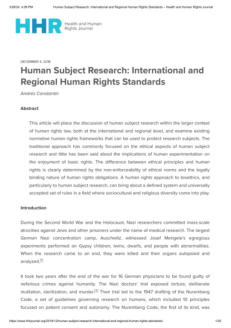

Author: Michael G. White
This study examines human subjects' involvement in
research, highlighting instances of flagrant misconduct.
Moreover, it delves into ethical analyses that have spurred
the development of mandatory safeguards for participants
in contemporary federal regulations.

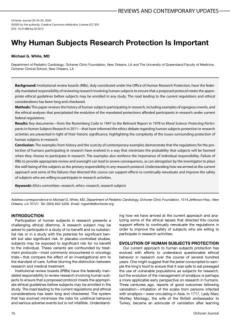

Author: U.S. Department of Labor Occupational Safety
and Health Administration
This publication provides a thorough overview of worker
rights as outlined in the Occupational Safety and Health
Act (OSH Act) of the United States. It is worth noting that,
although tailored for American employees, analogous
protective statutes also exist in other countries.

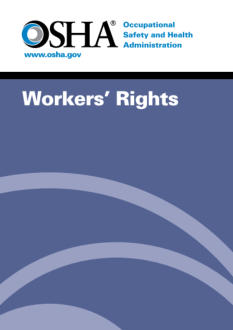

The International Code for Ships Operating in Polar
Waters (Polar Code) was adopted by the International
Maritime Organization (IMO) through resolutions
MSC.385(94) and MEPC.264(68) in 2015. The code aims
to provide for safe ship operation and protection of the
polar environment by addressing risks present in polar
waters
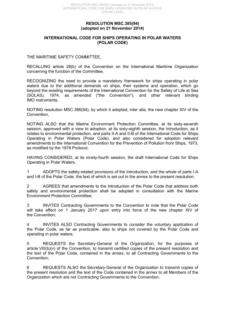

The amendments to the International Life-Saving
Appliance (LSA) Code, specifically Resolution
MSC.459(101), were adopted by the International
Maritime Organization (IMO) on June 14, 2019, and will
come into effect on January 1, 2024. These amendments
introduce significant changes primarily affecting the
requirements for lifeboats, launching appliances, and
rescue boats.


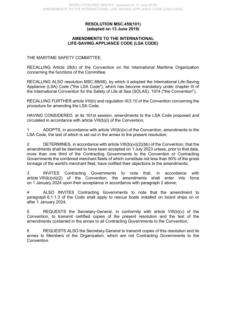

The International Convention for the Safety of Life at Sea
(SOLAS), 1974, is a key maritime treaty aimed at ensuring
safety at sea through the establishment of comprehensive
safety standards for ships. The convention has undergone
various amendments since its initial adoption, with the
most recent significant amendment being MSC.474(102),
adopted by the Maritime Safety Committee (MSC) during
its 102nd session.


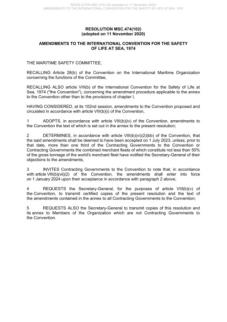

The International Maritime Dangerous Goods (IMDG)
Code, 2020 Edition is the regulatory framework for
handling dangerous goods and marine pollutants in
international maritime transport. It lays down basic
principles, detailed recommendations for individual
substances, materials and articles, and recommendations
for good operational practice

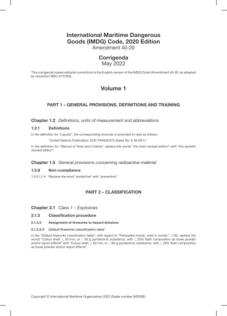

The 2023 Diving Code aims to address diving safety issues
not covered by other organizational instruments by
establishing a minimum international standard for the
design, construction, installation, and survey of diving
systems on ships, floating structures, and MODUs (diving
platforms). It seeks to facilitate safe diving operations from
these platforms, ensuring a safety level equivalent to that
required by SOLAS for ships on international voyages, and
to enable the international movement and safe operation
of diving units.




Click on the
octopus to return to
the top of the page

The Council for International Organizations of Medical
Sciences (CIOMS) provides guidelines that follow those
from the Declaration of Helsinki. This Council works in
relationship with the World Health Organization (WHO)
and UNESCO. It also highlights CIOMS's mandate to
maintain collaborative relations with the United Nations
and its specialized agencies.

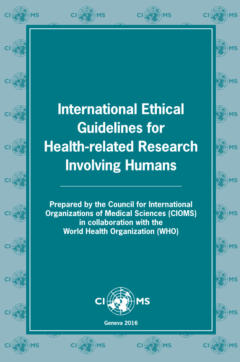

The Diving at Work Regulations 1997, designated as
Statutory Instrument No. 2776, were established to ensure
the health and safety of individuals engaged in diving
operations within the workplace in the United Kingdom.
These regulations set forth comprehensive requirements
for the management and execution of diving projects,
including the responsibilities of employers, the
qualifications and competencies required for divers, and
the necessary safety measures to be implemented.



The "Future Topical Updates to the Guide for the Care and
Use of Laboratory Animals: Proceedings of a Workshop—in
Brief (2024)" is anticipated to address emerging issues and
advancements in the field of laboratory animal care. This
workshop aimed to gather experts to discuss potential
updates to the existing guidelines, ensuring they reflect
current scientific understanding and ethical
considerations. Topics likely to be covered include
advancements in animal welfare, new technologies in
animal research, and evolving ethical standards.

